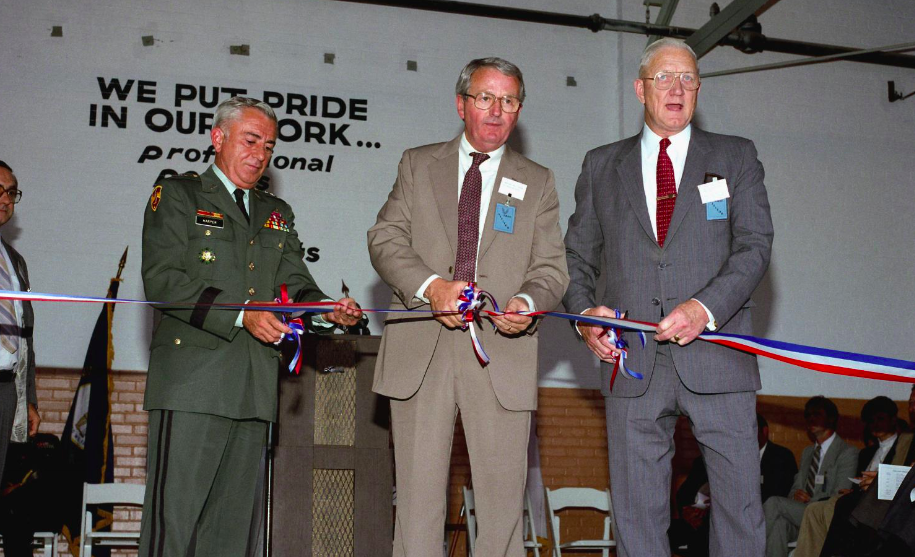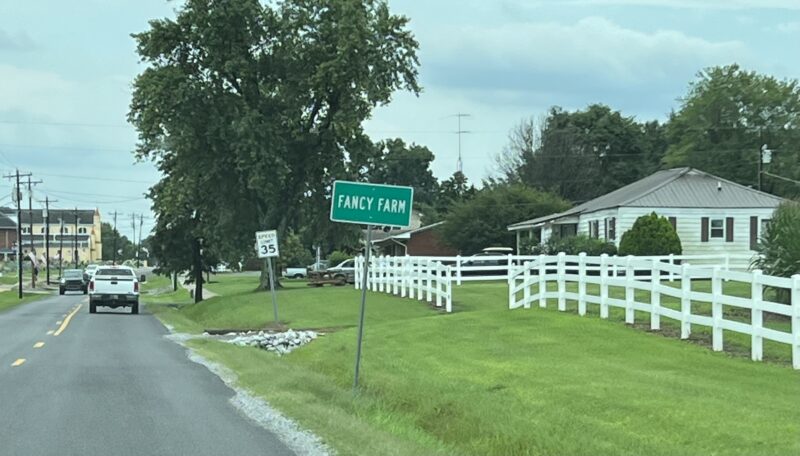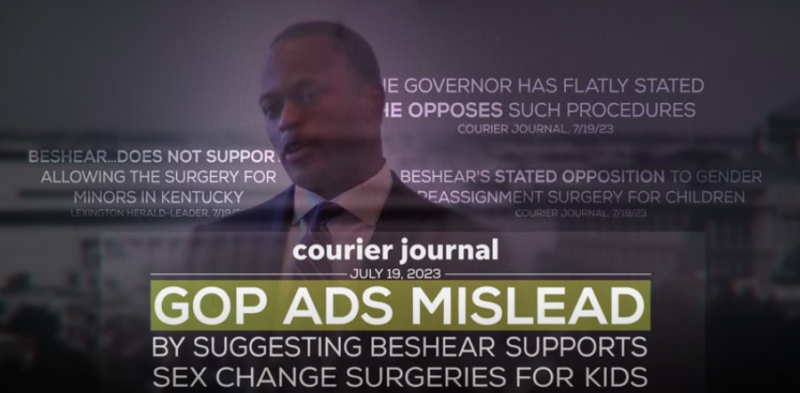The devolution of American politics, led by the Republican caucus in the U.S. House, can be told in the stories of two members of the caucus, 30 years apart: Larry Hopkins of Kentucky and Paul Gosar of Arizona.
“Nice guy” was the most-often heard description of Hopkins, who died Monday, Nov. 15. Three days later, Gosar’s colleagues censured him for publishing a cartoon that showed him beheading Rep. Alexandria Ocasio-Cortez of New York and heading next for President Biden.
Gosar’s latest outrage is just the most recent example of uncivil, unacceptable behavior that has become normalized by Donald Trump and his acolytes. Democrats have crossed the line, too, but the refusal of all but two House Republicans to censure Gosar shows how far their caucus has fallen since Hopkins left it in 1992.
A crude cartoon is not a threat, but it is emblematic of the larger threat we face: politics potentially violent warfare, driven by falsehoods and outright lies. That leaves little room for compromise, which was the way members of both parties got things done when Hopkins represented the Bluegrass region in Congress.
His daughter, Shae Hopkins, said of him, “My dad always believed in working with colleagues across the aisle for the greatest benefit of all. His deep respect for our government and wonderful sense of humor were hallmarks of who he was as a legislator and a person.”
Hopkins was too nice a guy for today’s politics. He was a state senator from Lexington who lucked into Congress in 1978 after Democratic state Sen. Tom Easterly of Frankfort narrowly upset Rep. John Breckinridge in the primary. Easterly was too liberal for the 6th District, and Republican leaders persuaded former state auditor Mary Louise Foust to withdraw as the GOP nominee and replaced him with Hopkins, who won big.
In Congress, Hopkins quickly rose to become the top Republican on the Armed Services Committee, and was known for bipartisan work investigating the bombing of the Marine Corps barracks in Beirut in 1983 and passing the important Military Reorganization Act of 1987.
If he had stayed in Congress, he would have become Armed Services chairman when Republicans took the House in 1994, but a GOP takeover seemed remote, and Hopkins ran for governor in 1991 based on the reasonable expectation that he wouldn’t have a primary. But he drew a late challenge from Larry Forgy, who had dropped out in 1987 despite being all but guaranteed the nomination.
Hopkins struggled to be both candidate and congressman. Asked why a 1988 reference biography of him said “USMC, Korea,” he said “I was in the latter part of the Korean Conflict. I was not there as a combat soldier.” He was a Marine at U.S. bases in 1954-56; the conflict ended with a 1953 armistice. The Korean Era for veterans’ benefits ended in 1955. It was also discovered that years before, Hopkins had exaggerated his education, so to many voters he looked daft or devious.
His congressional duties kept him from campaigning full-time, which was a great boon to Forgy, who was running as a reformer with a $300 limit on campaign contributions at a time when the per election limit was $4,000. If Forgy had set a $500 limit, he probably would have won. In losing to Hopkins by 1,945 votes, 1.2% of the total, he set himself up as the 1995 nominee, while Hopkins went into the general election greatly weakened by the primary. He tried to make an issue of Lt. Gov. Brereton Jones’ personal finances, but after Hopkins had to acknowledge 32 overdrafts at the House “bank” that wasn’t really a bank, he lost big and his political career was over.
Hopkins’ one loss shouldn’t obscure the examples of good humor and cooperation for which he was known.
In the current polarized environment, it was refreshing to see Democratic Rep. John Yarmuth of Louisville join Republican Reps. Brett Guthrie of Bowling Green and Hal Rogers of Somerset with the current holder of the Bluegrass seat, Republican Andy Barr, as he paid tribute to his predecessor.
“Above all, Congressman Hopkins was proud of his work across the aisle and the relationships he had with all of his colleagues,” Barr said. “In these divided times, let us be inspired by the legacy of Congressman Larry Hopkins to come together and solve the problems of our day, not as Republicans or Democrats, but as Americans who all love our country.”
Nice words, but this is the same Andy Barr who recently used on social media the “Let’s Go Brandon” meme that originated as a sports reporter’s misinterpretation of a crowd chanting “F— Joe Biden.” Times and technology have changed, but it’s hard to imagine Larry Hopkins, or almost anyone of his era, doing that. And much worse is afoot.
Al Cross is professor and director of the Institute for Rural Journalism and Community Issues at the University of Kentucky. He writes this column for the Kentucky Center for Public Service Journalism.




 Login
Login  Must include at least 8 charaters
Must include at least 8 charaters



